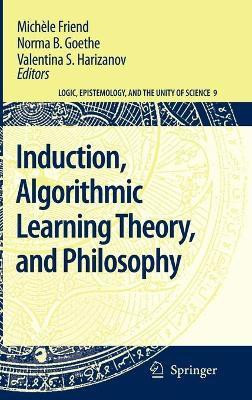Induction, Algorithmic Learning Theory, and Philosophy(English, Hardcover, unknown)
Quick Overview
Product Price Comparison
The idea of the present volume emerged in 2002 from a series of talks by Frank Stephan in 2002, and John Case in 2003, on developments of algorithmic learning theory. These talks took place in the Mathematics Department at the George Washington University. Following the talks, ValentinaHarizanovandMicheleFriendraised thepossibility ofanexchange of ideas concerning algorithmic learning theory. In particular, this was to be a mutually bene?cial exchange between philosophers, mathematicians and computer scientists. Harizanov and Friend sent out invitations for contributions and invited Norma Goethe to join the editing team. The Dilthey Fellowship of the George Washington University provided resources over the summer of 2003 to enable the editors and some of the contributors to meet in Oviedo (Spain) at the 12th International Congress of Logic, Methodology and Philosophy of Science. The editing work proceeded from there. The idea behind the volume is to rekindle interdisciplinary discussion. Algorithmic learning theory has been around for nearly half a century. The immediate beginnings can be traced back to E.M. Gold's papers: "Limiting recursion" (1965) and "Language identi?cation in the limit" (1967). However, from a logical point of view, the deeper roots of the learni- theoretic analysis go back to Carnap's work on inductive logic (1950, 1952).


